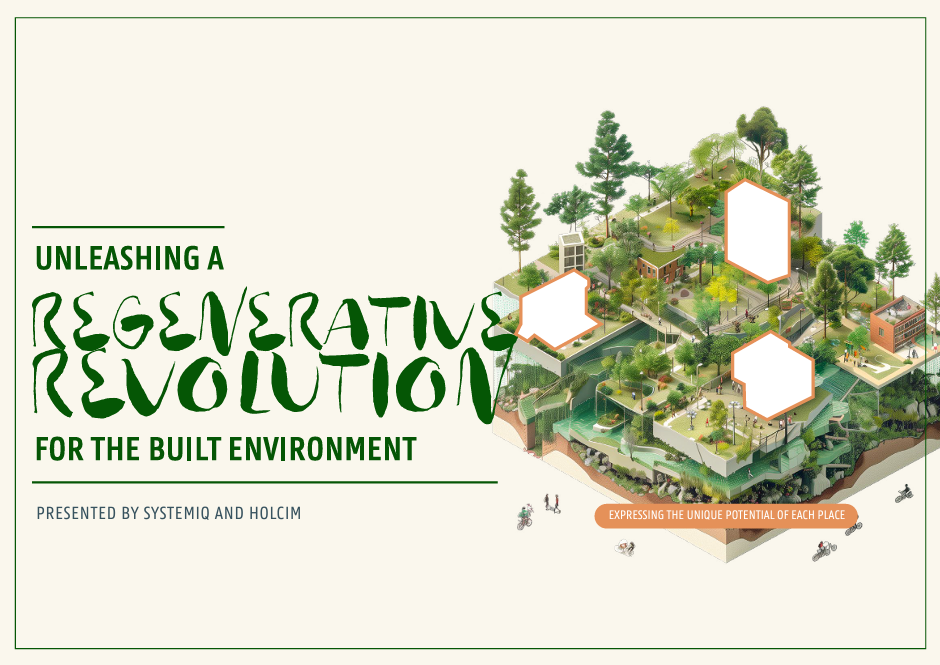Regenerative building report calls for transformation of built environment
Systemiq and Holcim have launched a report at Climate Week NYC 2024 calling for a “regenerative revolution” in the built environment to accelerate positive impact for people and the planet.

Developed with Holcim’s insights, the report from systems-change company Systemiq, “Unleashing a Regenerative Revolution for the Built Environment”, outlines the positive contribution that the built environment has made to human wellbeing and economic development, while calling for an acceleration of best practices.
Jeremy Oppenheim, Founder and Managing Partner, Systemiq: “A regenerative revolution in the built environment is possible, and offers a way of doing better business while delivering benefits to people, nature and climate. We need industry, finance and cities to innovate - together - so that our built environment can be the home of regeneration.”
Nollaig Forrest, Chief Sustainability Officer, Holcim: “At Holcim we’re focused on offering the broadest range of low-carbon, circular, nature-friendly and energy-efficient building solutions to make regenerative building possible for all. It’s exciting to see them at work in large-scale projects worldwide. This report is a call to action to scale regenerative solutions that work for people and the planet.”
As the world’s population grows and urbanization rises, the report outlines the huge opportunity for the built environment to scale up the adoption of low-carbon, circular, energy-efficient solutions that are nature-friendly and people-centric for humans and nature to coevolve.
Showcasing a wide range of regenerative building projects worldwide, the report features scalable approaches enabled by Holcim solutions. The BIG U, a nature-based coastal protection program in New York City that improves social resilience; Thammasat University in Thailand, which features Asia’s largest urban rooftop farm; Gasholders, a residential redevelopment in London that has transformed a disused area of King’s Cross into a new, vibrant urban space; and Recygénie near Paris – a social housing project that is the world's first building made using 100% recycled concrete.
Access the report here.






